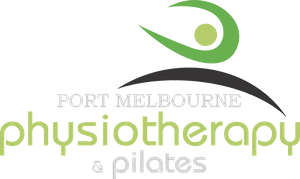Everyone speaks about the typical symptoms of women entering menopause. Most commonly women expect to deal with hot flashes, mood changes, and disrupted sleep. However, there is another condition that is linked to hormonal fluctuations that very few women know about or are prepared for. Sharp, limiting pain in the shoulder, known as adhesive capsulitis, more commonly known as frozen shoulder. While menopause doesn’t directly cause frozen shoulder, this painful condition has a surprisingly strong link to hormonal changes. Particularly the drop in estrogen during perimenopause and menopause. If you’re struggling with shoulder stiffness and discomfort that seems to have come out of nowhere, you’re not alone.
What is a Frozen Shoulder?
Frozen shoulder is a condition where the shoulder capsule, the connective tissue surrounding the shoulder joint, becomes inflamed, thickened, and tight. This limits the shoulder’s range of motion, often progressing through three phases: Freezing, frozen and thawing.
Freezing- Pain increases and movement becomes limited (can last 6 weeks to 9 months).
Frozen- Pain will typically decrease, however stiffness remains (can last 4 to 12 months).
Thawing- Gradual return of movement (can take 6 months to 2 years).
Why Is Frozen Shoulder More Common During Menopause?
There is no evidence of a direct link between frozen shoulder and menopause. However, women are more susceptible than men, commonly affecting females aged 40–60, particularly around the time of menopause. While the exact mechanisms are still being studied, several factors are believed to contribute.
1. Hormonal Shifts (Estrogen Decline)
Estrogen plays a role in maintaining collagen and connective tissue health. As estrogen declines during menopause, tissues including those in the shoulder joint may become more prone to inflammation, fibrosis, and reduced elasticity.
2. Increased Inflammatory Response
Menopause can heighten systemic inflammation. In women prone to autoimmune conditions or inflammatory responses, this may trigger joint capsule thickening, a key feature of frozen shoulder.
3. Changes in Physical Activity
Menopausal fatigue, weight changes, or pain in other areas (e.g. neck or back) can reduce general movement, including shoulder use. Reduced mobility can increase the risk of shoulder stiffness and joint capsule adhesions.
Other Contributing Factors to frozen shoulders
• Diabetes or thyroid dysfunction, both more prevalent or diagnosed around midlife, increase the risk.
• Previous shoulder injury or surgery.
• Immobility or prolonged inactivity, after a fall or strain.
Signs and Symptoms to Watch For
• Gradual onset of shoulder stiffness and pain
• Difficulty lifting your arm overhead or behind your back (e.g. putting on a bra or reaching for a seatbelt)
• Pain worse at night or when sleeping on the affected side
• A “block” feeling with certain movements
How Physiotherapy Can Help?
Physiotherapy plays an integral role in managing pain, improving mobility, and guiding safe recovery.
A physiotherapist can help you:
• Identify which stage you’re in and tailor treatment accordingly
• Use manual therapy and gentle mobilisations to maintain joint health
• Prescribe specific exercises to restore movement and avoid compensation patterns
• Incorporate soft tissue release and dry needling where appropriate
• Support postural and strength training to protect your other joints and spine
What You Can Do at Home
• Gentle mobility exercises daily (e.g., pendulum swings, wall walks)
• Heat packs to soothe discomfort before exercise
• Maintain overall movement and circulation with walking, Pilates, or swimming
• Consider speaking with your GP about hormonal support options
• Stay consistent frozen shoulder recovery is gradual, but persistence pays off
Frozen shoulder can feel frustrating but it’s more common than most women realise, especially during the menopausal years. If you’re struggling with pain, loss of movement, or difficulty performing daily tasks, seek investigation. With the right physiotherapy approach and supportive care, you can reclaim your mobility and have a management plan.
- Alex
